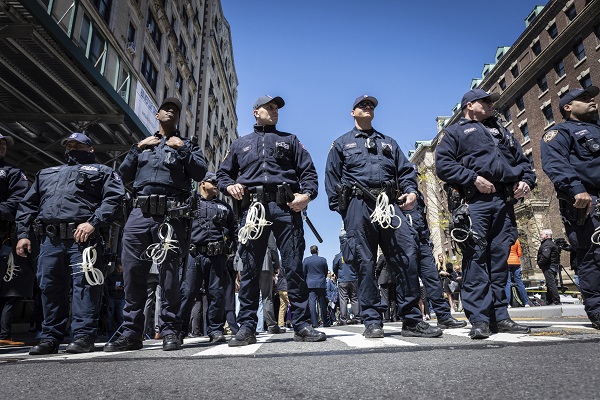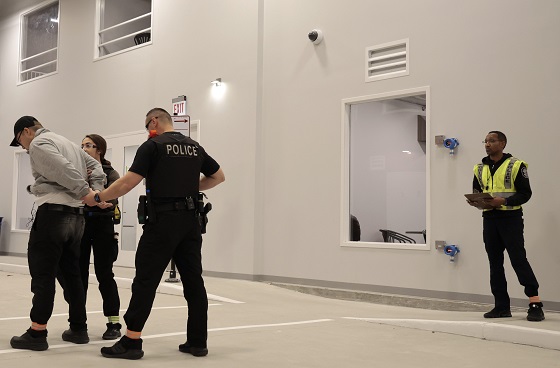By Sam Charles
Chicago Tribune
(TNS)
(Chicago Tribune) — One of the executive orders signed by President Donald Trump this week seeks to end all federal consent decrees governing reform efforts by police departments across the country.
But Chicago’s consent decree — in place since 2019 — isn’t going anywhere, according to the Office of the Illinois Attorney General.
“The consent decree between the state of Illinois and the city of Chicago regarding the Chicago Police Department is a binding court order that will remain in effect,” April McLaren, deputy press secretary for Illinois Attorney General Kwame Raoul, said in an emailed statement this week. “The Attorney General’s office remains committed to the constitutional policing residents of Chicago deserve.”
The executive order issued Monday instructs the U.S. Attorney General to, within 60 days, “review all ongoing federal consent decrees, out-of-court agreements, and post-judgment orders to which a state or local law enforcement agency is a party and modify, rescind, or move to conclude such measures that unduly impede the performance of law enforcement functions.”
Chicago’s consent decree was approved and entered by a federal judge in early 2019. That now-former judge, Robert M. Dow, now serves as chief of staff to Supreme Court Chief Justice John Roberts. The Department of Justice is not a party in the matter, offering a layer of protection.
Earlier this month, the monitoring team that assesses the city’s consent decree progress, found CPD had achieved some level of compliance with more than 90% of the consent decree’s mandates, though the extent varies by category. The monitoring team was effusive in its praise for how CPD officers and supervisors handled the protests and marches that accompanied the Democratic National Convention in August 2024.

The city’s consent decree was sparked by the 2014 murder of 17-year-old Laquan McDonald by former CPD officer Jason Van Dyke. After the release of the now-infamous shooting video in 2015, the United States Department of Justice launched an investigation into CPD and found that officers “engaged in a pattern or practice of unreasonable force – including deadly force – in violation of the Fourth Amendment of the Constitution.”
Following the DOJ investigation, the Office of the Illinois Attorney General, then led by Lisa Madigan, filed a federal lawsuit against the city as a way to cement a sweeping series of proposed reforms. The Fraternal Order of Police Lodge 7, the union representing rank-and-file CPD officers, made attempts to join the consent decree as a party to the lawsuit, but was denied.
In 2016, while still campaigning for his first term as president, Donald Trump said he spoke with an unnamed Chicago police officer who told him that the city’s crime would cease “if they let us do our job.” During a campaign rally last fall, Trump called for “one real rough, nasty” and “violent day” when police officers would be permitted to use excessive force to stop crime, according to Politico.
Soon after Trump’s second inauguration, his administration filed a still-pending federal lawsuit against the city that seeks to force CPD officers to assist agents from Immigration and Customs enforcement — the very activity barred by Chicago’s “Welcoming City” ordinance.
In 2018, the 7th Circuit Court of Appeals ruled that federal funds could not be withheld from cities that do not cooperate with immigration authorities.
©2025 Chicago Tribune. Visit at chicagotribune.com. Distributed by Tribune Content Agency, LLC.


